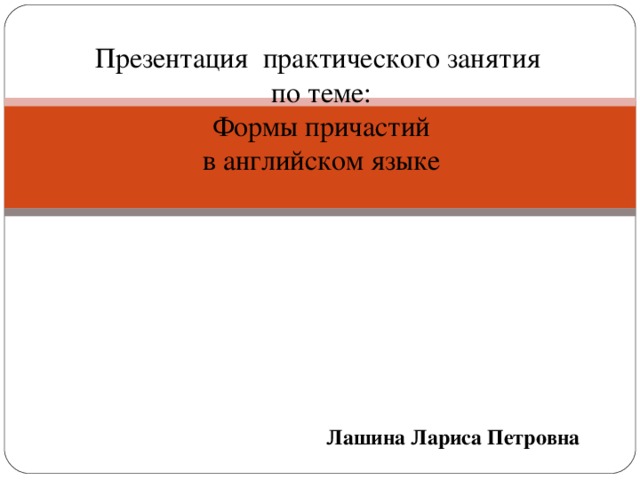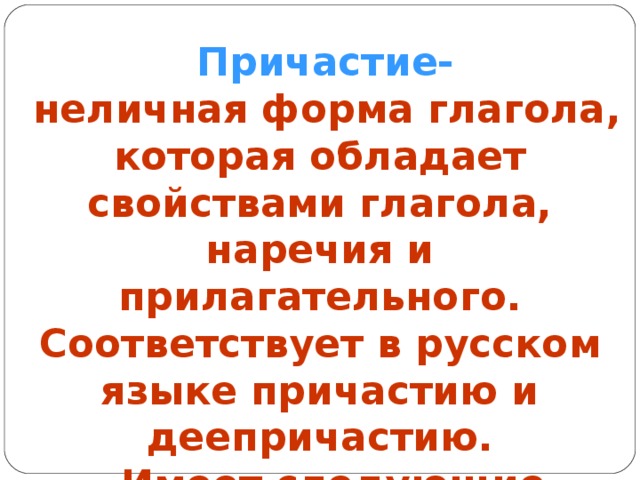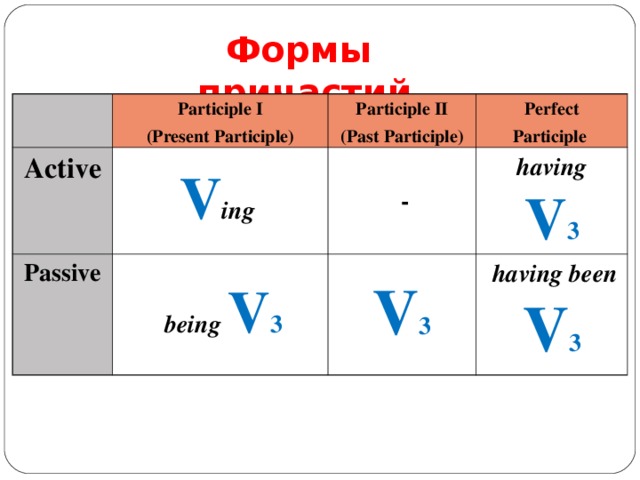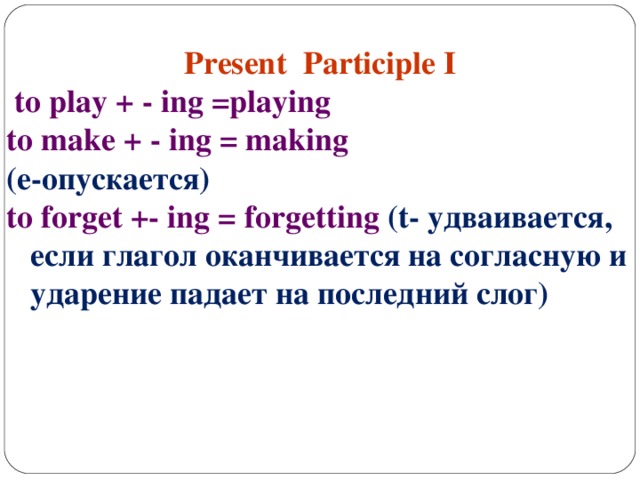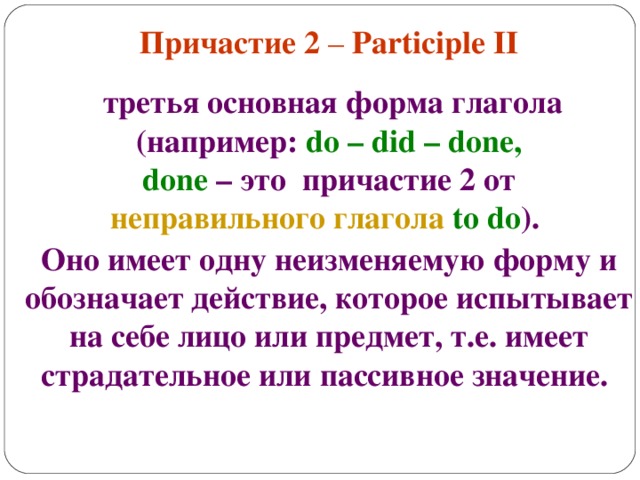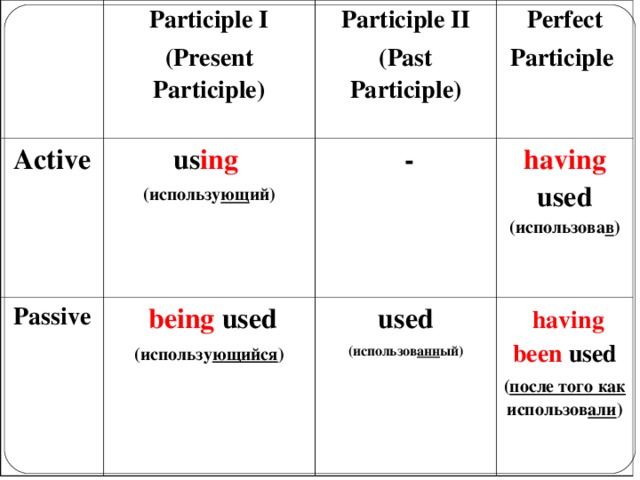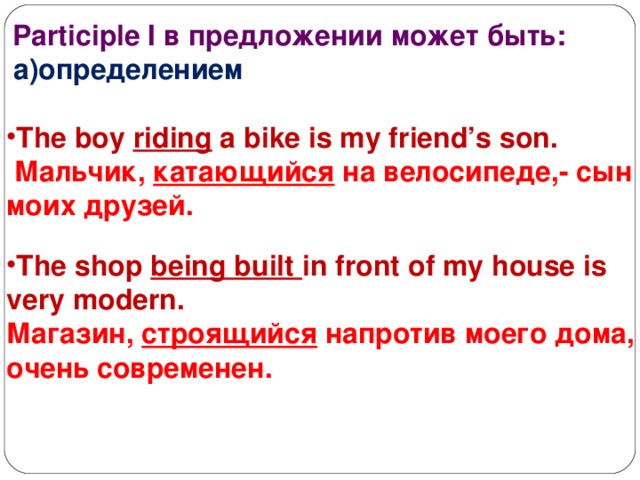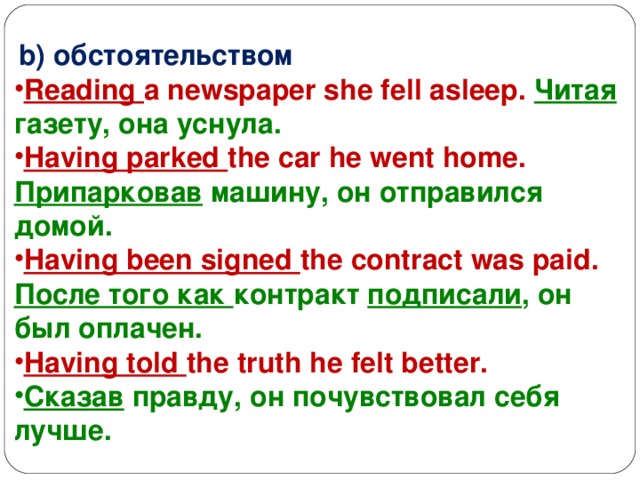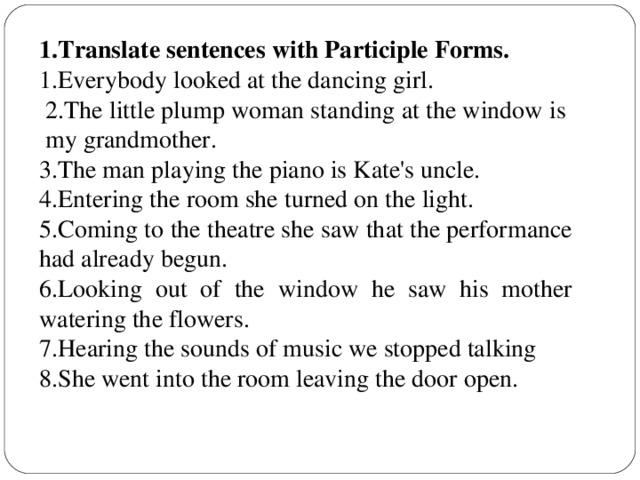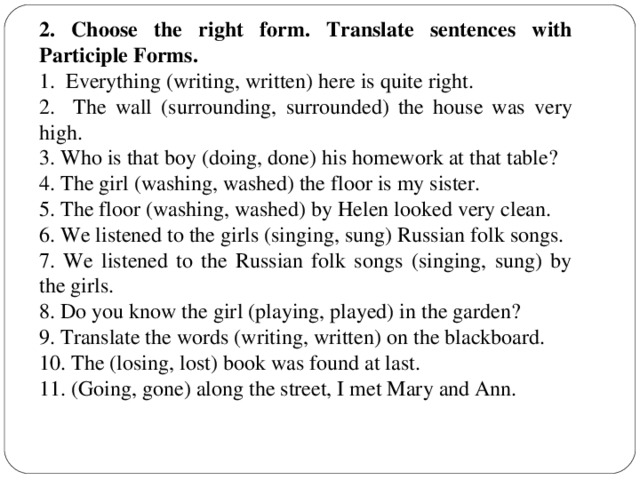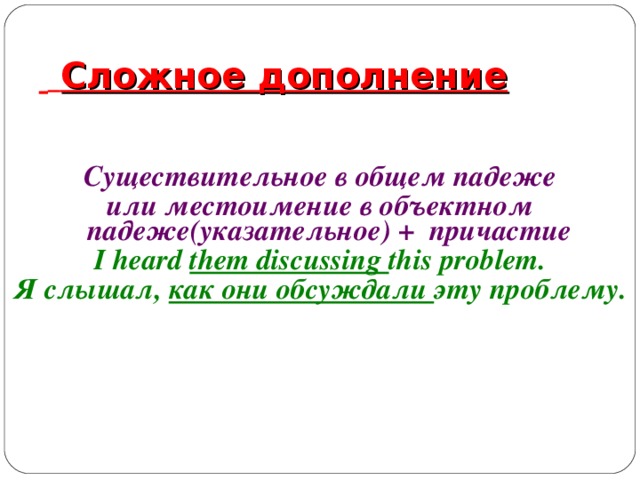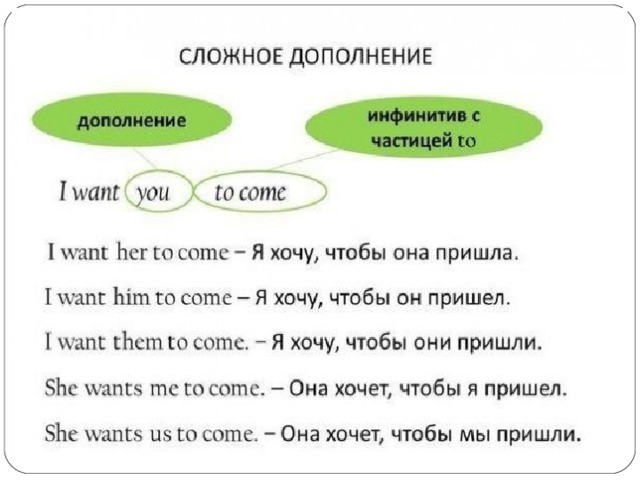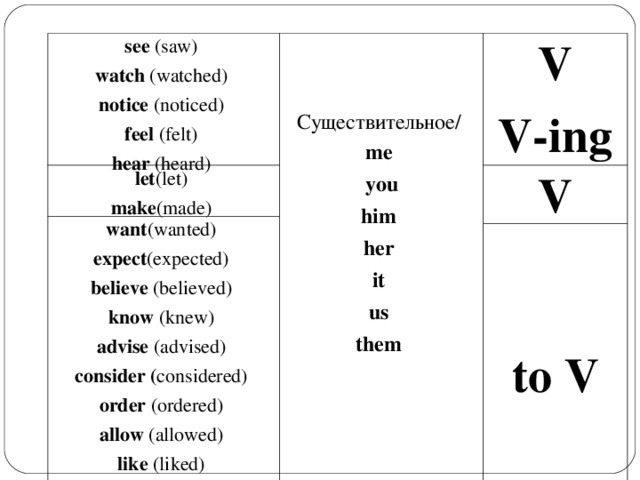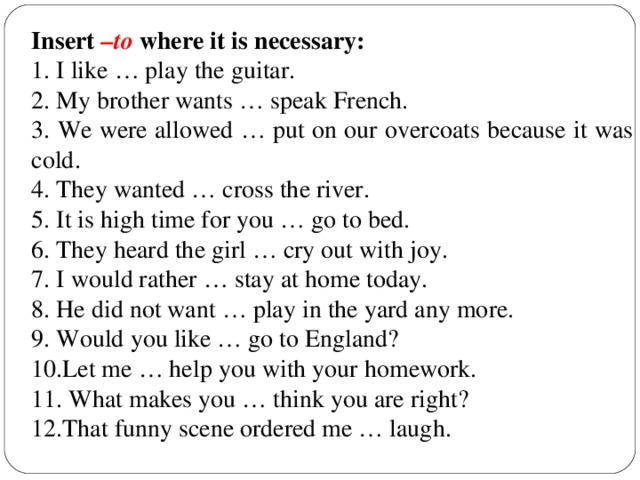Данная презентация предназначена для сопровождения пратического занятия по дисциплине "Иностранный язык" по теме "Формы причастий в английском языке", содержит краткое описание образования и употребления в предложениях форм причастий, что способствует усвоению лексико-грамматического материала. Презентация помогает реализовать на практике коммуникативную методику обучения.
Создайте Ваш сайт учителя Видеоуроки Олимпиады Вебинары для учителей
Презентация практического занятия по теме "Формы причастий в английском языке"
Вы уже знаете о суперспособностях современного учителя?
Тратить минимум сил на подготовку и проведение уроков.
Быстро и объективно проверять знания учащихся.
Сделать изучение нового материала максимально понятным.
Избавить себя от подбора заданий и их проверки после уроков.
Наладить дисциплину на своих уроках.
Получить возможность работать творчески.
Просмотр содержимого документа
«Презентация практического занятия по теме "Формы причастий в английском языке"»
Предмет: Английский язык
Категория: Презентации
Целевая
аудитория: 11 класс.
Урок соответствует ФГОС
Полезное для учителя
Распродажа видеоуроков!
1880 руб.
2690 руб.
1860 руб.
2660 руб.
1770 руб.
2530 руб.
1880 руб.
2690 руб.
ПОЛУЧИТЕ СВИДЕТЕЛЬСТВО МГНОВЕННО
* Свидетельство о публикации выдается БЕСПЛАТНО, СРАЗУ же после добавления Вами Вашей работы на сайт
Удобный поиск материалов для учителей
Проверка свидетельства
